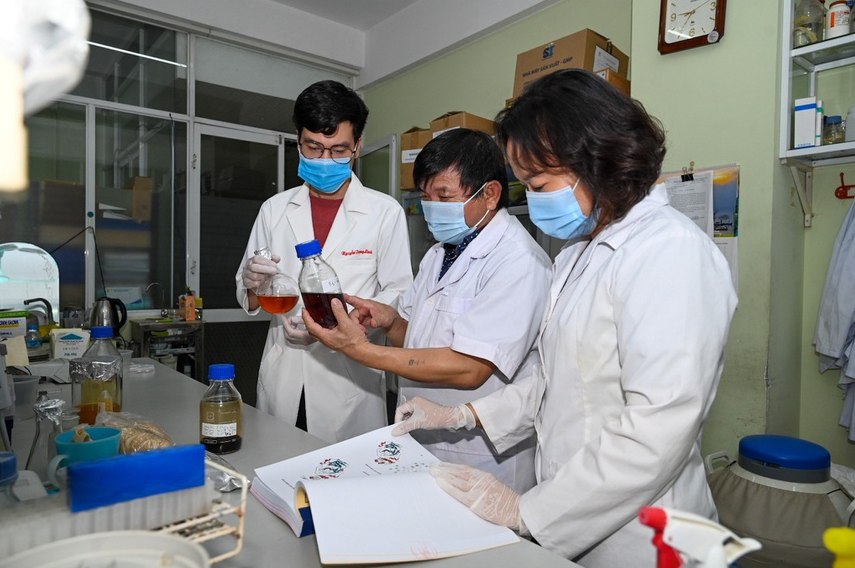Adversities of Covid-19 pandemic can bring businesses opportunities
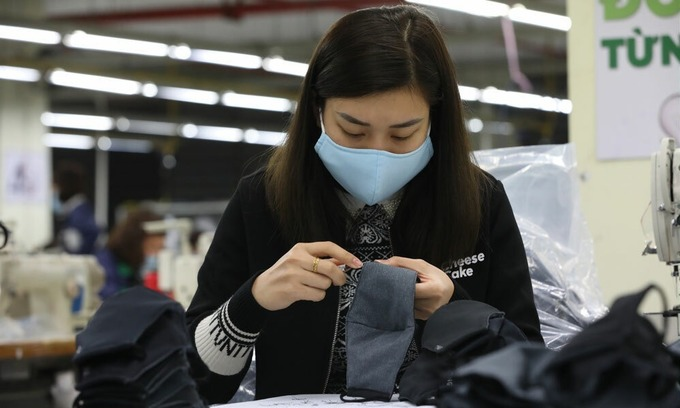 |
| A worker manufactures face masks at a factory in Hanoi. Photo by VnExpress. |
The pandemic continues to expand. More than 200 countries and territories have reported cases of COVID-19, the disease caused by the coronavirus (SARS-CoV-2). Case growth has accelerated to more than 930,000 cases and 47,000 deaths as of April 2. Some geographies have a handful of cases, others with early community transmission have a few hundred, and those with uncontrolled, widespread transmission have tens of thousands. Governments have launched unprecedented public-health and economic responses. The situation evolves by the day.
A demand slump caused by the novel coronavirus was the catalyst for HCMC-based ABC Bakery’s newest invention, the dragon fruit bread, Kao Sieu Luc, its owner, said at a recent business conference held by VnExpress.
"We wanted to create an exciting new product, or even a new culinary tradition, after schools, airports and eateries cut orders for our goods. The dragon fruit bread also solved a major problem: tons of dragon fruit usually exported to China could not go there any more after the country stopped taking deliveries because of Covid-19."
The pink bread, in which 60 percent of the water in the dough is replaced with a dragon fruit smoothie, was an instant hit in HCMC when it was released late February, and the chain quickly ramped up production to 20,000 loaves a day, even having to initially limit customer purchases.
Luc added: "We are looking into making bread from durian and dragon fruit burgers to sell to fast food outlets. In a crisis like this, other businesses should also look to create new markets or enrich existing products to stimulate demand."
Phan Van Dung, deputy director of groceries chain Vissan, said the pandemic has made customers reluctant to shop at the company’s 50 outlets, and so it has begun a two-hour delivery service for shoppers who order on a hotline.
Though Vissan has not sold goods online, the pandemic has caused it to rethink strategies it is likely to transition towards online delivery, he said.
"Because we produce and distribute foods, which are essential goods, our business was not too adversely affected. Customers have shifted en masse from fresh to processed foods with expiry periods of 6-12 months, and so we have shifted our production to accommodate these changes.
Vo Minh Nhut, CEO of NS BlueScope Vietnam, a steel company, said, "There are a lot of things businesses could do when dealing with a crisis like Covid-19.
The most important factor for businesses, especially for small and medium-sized enterprises (SMEs), is cash flow, and businesses need to reconsider how they manage inventory, receivables and payment periods with suppliers, he said.
They should also cut inessential costs that have minimal effect on workers and customers by delaying marketing campaigns and canceling promotional events, which NS BlueScope has done, he said.
"Businesses should always plan ahead for bad scenarios and push for sustainable development, and not just wait for a crisis to happen before doing so.
Pham Phu Truong, board member of the Ho Chi Minh City Young Business Association (YBA), said while it is easy for large businesses to plan ahead and minimize risk, it is not for SMEs that account for 90 percent of all businesses in Vietnam.
"Some SMEs have cash cycles that only allow them to survive for three months. This means some of them will inevitably be shaken out of the market. Nevertheless, from a macro standpoint, this is the price the economy needs to pay for businesses to improve, become more sustainable, and develop buffers against crises."
Interdependence
The Covid-19 pandemic has allowed Vietnamese producers to turn inward and build new working relationships with domestic suppliers, whereas earlier they had a plethora of foreign suppliers to choose from, Truong said.
"Because the pandemic has disrupted global supply, businesses have no choice but to turn to their compatriots for immediate relief. This helps firms better understand the strengths and opportunities offered by domestic suppliers, as well as stimulate growth of the domestic sector in general."
YBA has set up many forums for businesses in various industries to connect, share solutions, pool resources, and enhance cooperation with the government, he said.
Nhut said this would help expand business collaboration on a large scale unlike in the past when most SMEs only cooperated on an individual basis.
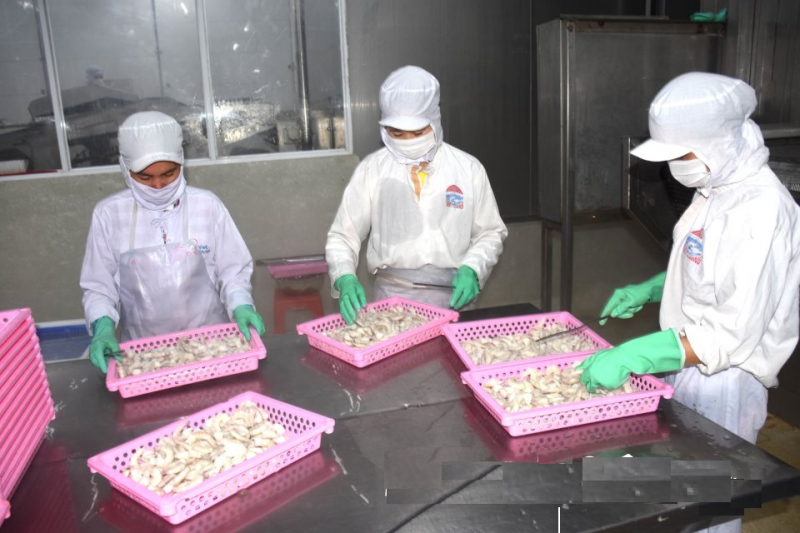 |
| Packing for shrim exports in Viet Shrim Company (Photo: baclieubao) |
A recent survey by YBA of businesses in HCMC found 90 percent saying they were willing to help other businesses survive the economic effects of Covid-19.
"It seems businesses have realized they need each other to survive, and if each link in the supply chain is willing to lower their price a little, the whole chain will be able to coexist," Truong pointed out. "But 90 percent is a surprisingly encouraging statistic, which shows the positive mentality of Vietnamese enterprises in the face of the pandemic."
Though hurting less than other Asian economies, the epidemic could drag down Vietnam's GDP growth by 0.41 percent to a seven-year low of 5.96 percent, the ADB has said. Last year growth was 7.02 percent, the second highest in a decade.
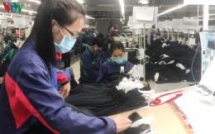 | Businesses set to capitalise on RCEP opportunities to bolster exports Following six years of negotiations, the Regional Comprehensive Economic Partnership (RCEP) has entered its final stage of talks, with the agreement expected to be signed ... |
 | Opportunities arise for increased labour exports to Europe Aside from traditional markets such as Japan, the Republic of Korea, and Taiwan, Europe is emerging as a potential market for Vietnamese workers following the ... |
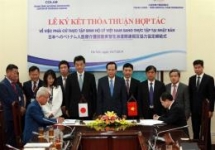 | Job opportunities in Japan's health sector A total of 240 workers will be chosen to work in Japanese hospitals this year, the Department of Overseas Labour (DoLAB) under the Ministry of ... |
Recommended
 Economy
Economy







